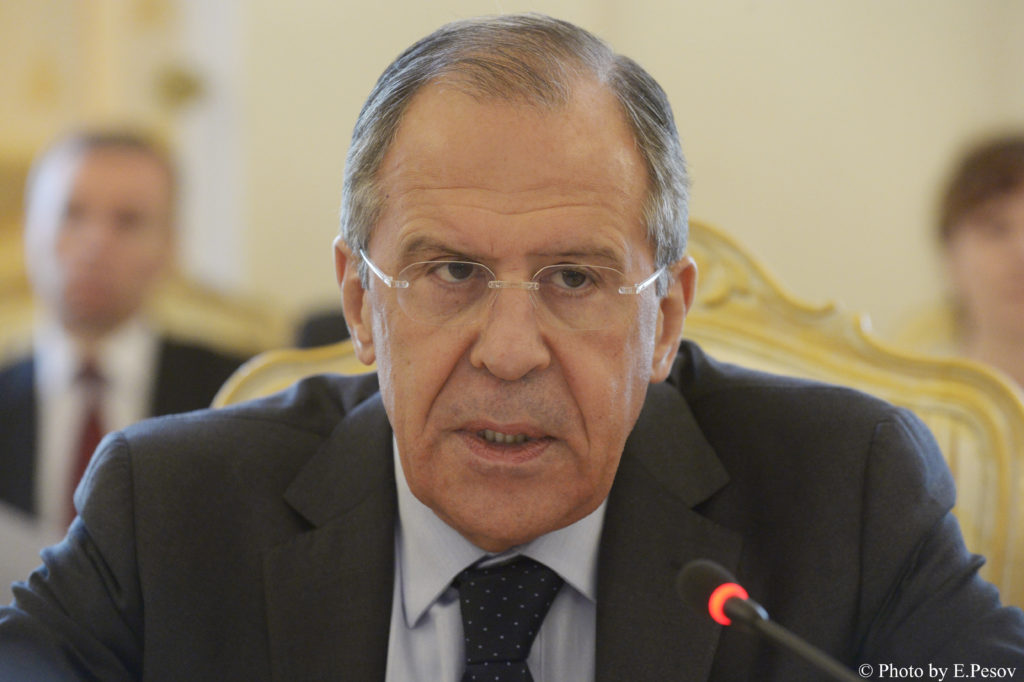BAKU
Russian Foreign Minister Sergei Lavrov made a one-day visit to the Azerbaijani capital, Baku, on Tuesday, to try and reinforce Russia’s role in the region, where it maintains a peacekeeping contingent.
Lavrov had earlier visited Armenia. The two countries signed a peace agreement late last year that ended almost 30 years of war. Armenia lost seven districts of Azerbaijan it had occupied for years and the historic city of Shusha.
Russia has deployed several thousand peacekeepers between the sides. Turkey, which was a major factor in helping Azerbaijan reverse its three decades of losses in a 45-day assault, also has officials in the formerly occupied territories of Azerbaijan as part of a joint Russian-Turkish monitoring centre. Turkish advisors had given counsel to Azerbaijan, an ally, for years.
Lavrov, just as he had faced tough questions in Armenia, faced other hard ones in Baku.
Azerbaijani Foreign Minister Jeyhun Bayramov brought up the continuing issues of land mines in the now de-occupied territories, which have killed or maimed several dozen people since the areas were abandoned by Armenia.
Azerbaijan says 22 have been killed and over 100 injured in mine incidents since the occupied territories were relinquished.
The mine map issue is a major remaining issue, assuming they even exist. There has been no definite answer to the issue – whether there is a deliberate withholding of mine maps or that proper documentation does not even exist in some cases.
Lavrov said he had discussed the mine issue with both sides. “Preliminary steps have been made. Expect that the issue will soon be resolved,” he continued.
The issue of what Baku says is up to several thousand Azerbaijanis who disappeared early in the conflict was also raised.
The conflict started to brew in 1988 and broke into open large-scale hostilities in 1991. There has been no definite answer to the issues – whether there is a deliberate withholding of mine maps or that proper documentation does not even exist in some cases.
Lavrov was making his second visit to the region in five days.
He visited Armenia late last week, where he also discussed de-mining issues, and addressed Armenian concerns that its “cultural heritage” sites would be protected by the Russian peacekeeping contingent.
“We have noticed progress achieved in stabilising the situation around Nagorno-Karabakh. We have not slowed efforts at de-mining, or protecting cultural and religious heritage, he said during a press conference with Armenian Foreign Minister Ara Ayvazyan.
Lavrov also touched on the trilateral working group led by the Deputy Prime Ministers of Russia, Azerbaijan, and Armenia.
The working group has met several times and is laying down proposals to re-open transport corridors and borders closed since the early 1990s.
Unblocking economic ties and transport communications in the region make an essential contribution to normalising relations in the region.
“The success of this work will have a decisive importance for the creation of conditions, necessary to normalize the overall situation and establish creative cooperation in the post-conflict period,” Lavrov said.
The Russian Foreign Minister also stressed the necessity of the further activity of the OSCE Minsk Group co-chairs to assist in creating the atmosphere of trust.
“We, like no one else, are interested in the practical application of all achieved trilateral agreements. When people feel the benefit of the peaceful life, they will start to form a different approach to issues that they view as acute now,” Lavrov said in Yerevan.

